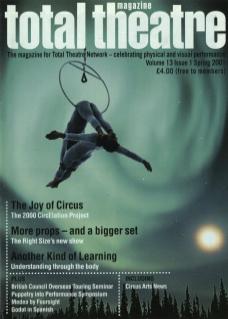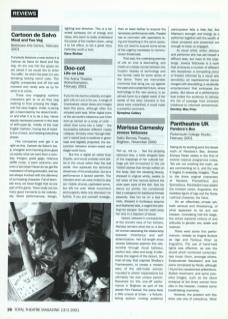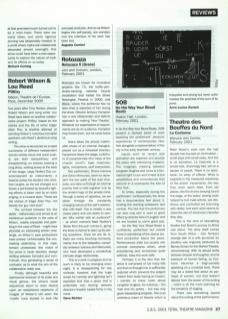Taking as its starting point the Greek myth of Pandora's Box, director Enrique Pardo states in the first of several copious programme notes, ‘We are not retelling the myth, we are commenting on it, and the way it lingers in everyday imagery.’ Thus to the three original characters of Pandora, Prometheus and Epimetheus, Pantheatre have added the trickster clown, Augustine, the Goddess figure of Uga and the Norse mythical character, the Volva.
On an effectively simple set, both sensual and threatening, of what appeared to be dull red hessian, concealing half the stage, the actors explored notions of and attitudes to gender, sex, death and violence.
There were some fine performances, notably by Angela Bullock as Uga and Faroque Khan as Augustine. The use of hand-held lights was effective, as was the sound which combined contemporary music (from, amongst others, Einsturzende Neubaten) and live piano composed by Pardo, although I found the narrated text pretentious. Skilled movement, and some powerful images, such as the silent entrance of the three women from slits in the hessian, created some breathtaking moments.
However, the problem with this show was one of coherence. What at first promised much turned out to be a mish-mash. There were too many ideas, and some rigorous pruning was desperately needed. In a world where myths are created and discarded almost overnight, this show could have been a real opportunity to explore the nature of myth and its effects on us today.


